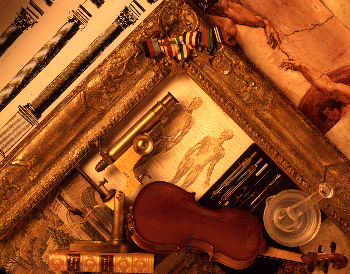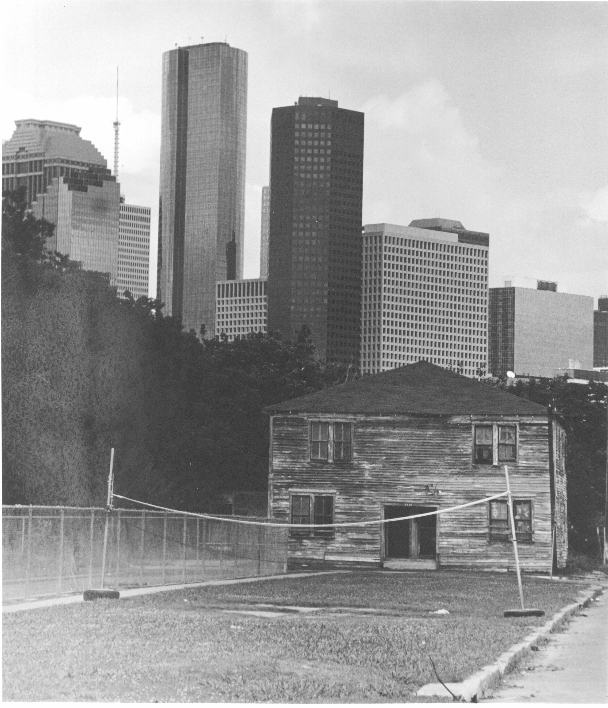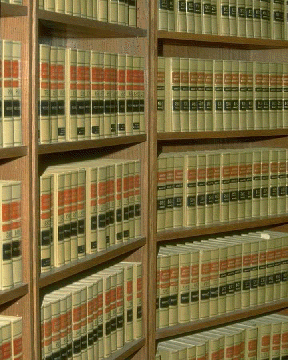
A list of "Ten Ways I'm Not Like Ally McBeal."
It's not even original commentary, but a response to one.
The Real Me (or Ten Ways I'm Not Like Ally McBeal)

|
This is not a poem or a literary landmark. It's simply a list. A list of "Ten Ways I'm Not Like Ally McBeal." It's not even original commentary, but a response to one. |
|
Normally, I spend my time writing letters to government officials – asking their help to preserve the redwoods in northern California or the Freedmen's Town district near downtown Houston – but today I took time out to write a personal statement at the request of my friends, Angela and Bernadine, who are starting a media group and production company. |

|
 |
Bernadine, along with my brother Roland, happened to comment one day that I should watch Ally McBeal on TV, because her character reminds them so much of me.
I finally managed to catch the show,
Here is the judicial reasoning behind my opinion, |
| I. Within the first five minutes of appearing before a judge, I would have made a First Amendment argument – either for the free exercise of religion, the freedom of speech, or in Ally's case, the right of a couple peaceably to assemble at their workplace. I would argue that sexual harassment policy is a moral issue that belongs in mediation and not in the courtroom, that the parties have equal rights to their own personal viewpoints, and that no judge has authority to rule in favor of one person's values over another. Thus, I would argue that any binding decision must be based on consensus, reconciling the moral or religious beliefs of both sides. However, I still would have fallen flat on my face, overruled. That is one thing Ally McBeal and I might have in common. |  |
 |
II. I would not have told "Billy" (or whatever his name is) to keep his true feelings to himself – I would have yelled at the guy for not confronting me three episodes ago! (And for compounding the problem by getting a third party "Georgia" involved – whom I would call on the phone before asking yet a fourth character for advice). The only rational argument left (to prolong the dialogue, or to get the last word) would be that huge companies are paying tons of money for commercials between these senseless spats. If conflicts were resolved logically, instead of dragging them out for weeks, the producers couldn't support the series, and the actors would lose their jobs. That's what I would need to see – characters fully aware of the powers controlling their fate via corporate America and our consumeristic culture. That's real life. (And why I don't have time for TV.) |
| IV. I wouldn't kiss another character or actor I wasn't married to or madly in love with. If I'm not cast with Hugh Grant or Mel Gibson (or some guys I know who look like them), I'd rewrite the script. (Maybe that's why I'm stuck here typing this list, instead of working for film and television. Ha!) |  |
V-X. Throughout the course of an hour, I would have been caught on camera saying one or more of the following phrases at least once (if not repeatedly with variations, minus the cursing in brackets):
 |
v. God, get me off this [ ] planet. vi. What do I have to [ ] do to [ ] save Freedmen's Town. vii. Can't I live in a world that doesn't run on money? viii. Why can't I sleep all day, like a baby in a blankey? Do I have to deal with all this [ ]? ix. Oh, my God, I'm going to die. [ ], [ ], [ ]. x. [ ]! How soon can I die and get off this [ ] planet!! [ ]!!! |  |
   |
VI. In all criminal prosecutions, the accused shall enjoy the right to a speedy and public trial, by an
impartial jury of the State and district wherein the crime shall have been committed, which district
shall have been previously ascertained by law, and to be informed of the nature and cause of the
accusation; to be confronted with the witnesses against him; to have compulsory process for
obtaining witnesses in his favor, and to have the Assistance of Counsel for his defence.
VII. In Suits at common law, where the value in controversy shall exceed twenty dollars, the right of trial by jury shall be preserved, and no fact tried by a jury shall be otherwise re-examined in any Court of the United States, than according to the rules of the common law. VIII. Excessive bail shall not be required, nor excessive fines imposed, nor cruel and unusual punishments inflicted. IX. The enumeration in the Constitution, of certain rights, shall not be construed to deny or disparage others retained by the people. X. The powers not delegated to the United States by the Constitution, nor prohibited by it to the States, are reserved to the States respectively, or to the people. |
 I threw in these amendments in case you didn't count item number five (V) as six separate points (V-X).
Never mind. I'd much rather use this space to advocate for legal literacy and political freedom – giving
people laws in writing so we can enforce rules for ourselves. I believe people should hash out personal
differences in mediation, and stay out of courtrooms and jails. Making peace is cheaper than lawsuits and
physical violence, plus it's better for the mental and spiritual health of the parties in conflict. (Not to
mention the lawyers, judges, jurors and taxpayers. No wonder our mental institutions are all booked up!)
I threw in these amendments in case you didn't count item number five (V) as six separate points (V-X).
Never mind. I'd much rather use this space to advocate for legal literacy and political freedom – giving
people laws in writing so we can enforce rules for ourselves. I believe people should hash out personal
differences in mediation, and stay out of courtrooms and jails. Making peace is cheaper than lawsuits and
physical violence, plus it's better for the mental and spiritual health of the parties in conflict. (Not to
mention the lawyers, judges, jurors and taxpayers. No wonder our mental institutions are all booked up!)
 The same way literacy revolutionized the church, when people no longer depended on priests but could
read and follow the laws by themselves, I believe the state shouldn't resist, but should welcome a similar
liberation that has already begun. I see the government as a parental authority afraid to let go of its own
grown-up children – people fighting once more for their independence, the freedom to govern themselves
as equal consenting adults. It seems that only big corporations, with no personal accountability, are
allowed to make their own laws, while the rest of us in society don't have a voice. This is not equal justice.
If judges and lawyers won't represent and protect people's interests equally, perhaps, like the priests in the
temple, they should let go of their monopoly on laws and legal interpretation and let the people represent
themselves. Until that happens, I won't step into court, as a lawyer or anybody else, without a huge protest.
The same way literacy revolutionized the church, when people no longer depended on priests but could
read and follow the laws by themselves, I believe the state shouldn't resist, but should welcome a similar
liberation that has already begun. I see the government as a parental authority afraid to let go of its own
grown-up children – people fighting once more for their independence, the freedom to govern themselves
as equal consenting adults. It seems that only big corporations, with no personal accountability, are
allowed to make their own laws, while the rest of us in society don't have a voice. This is not equal justice.
If judges and lawyers won't represent and protect people's interests equally, perhaps, like the priests in the
temple, they should let go of their monopoly on laws and legal interpretation and let the people represent
themselves. Until that happens, I won't step into court, as a lawyer or anybody else, without a huge protest.
That's why I'm not like Ally McBeal.
But that's what makes me
the real Emily Nghiem.
 |
In issuing a challenge to scriptwriters in Houston, L.A., and New York to write and produce a television episode in which Ally McBeal and her law firm take on the corporate developers destroying Freedmen's Town -- a national historic African American settlement in Houston, Texas -- thus setting a judicial precedence that inspires the nation to seek creative solutions to political problems.
If no real-life lawyer is willing to fight for justice, on behalf of Freed Slaves and other immigrants who sacrificed their lives and their liberty to build this great country,
I'd like to see what the lawyers |
Let the winning legal argument
that liberates Freedmen's Town
serve as a lasting reminder
that "Equal Justice Under Law"
does not exist on its own,
but depends on human faith and imagination
and compassion behind the words.
| May the best argument win. And the best writers be proven. Good luck. | 
|
| Emily Nghiem | "Ten Ways I am Not Like Ally McBeal" (e) 1999. |
| All rights reserved. All wrongs reversed. | |
| P.O. Box 981101 | |
| Houston, Texas 77098 | isocracy99@hotmail.com |
| vmb: (713)867-5998 | http://www.houstonprogressive.org/4d-index.html |